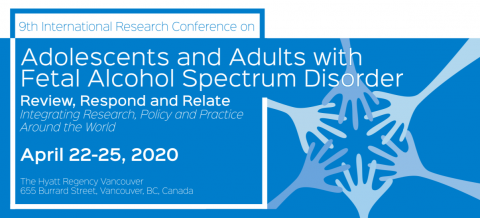City/Region/State or Online
Vancouver

Although there have been thousands of published articles on FASD, there still remains limited research specifically on adolescents and adults with FASD. As individuals diagnosed with FASD continue to age, the “need to know” across a broad spectrum of areas continues to be critically important for identifying clinically relevant research questions and directions.
Continuing on the work of eight previous conferences, there remains a clear need to examine relevant global research, programs and policies.
Learning Objectives
During the 2020 Conference, participants can expect to:
- Connect the identified needs of community workers, healthcare providers, and families with the research community
- Recognize emerging research findings and how they might better assist ethical policy and decision making and the development of
integrated and collaborative approaches across systems
- Examine practice-based evidence, projects and programs to understand the potential connections to research and potential
longitudinal studies
- Engage in knowledge exchange and dialogue through sessions, networking and the direct experience of individuals with FASD and families
